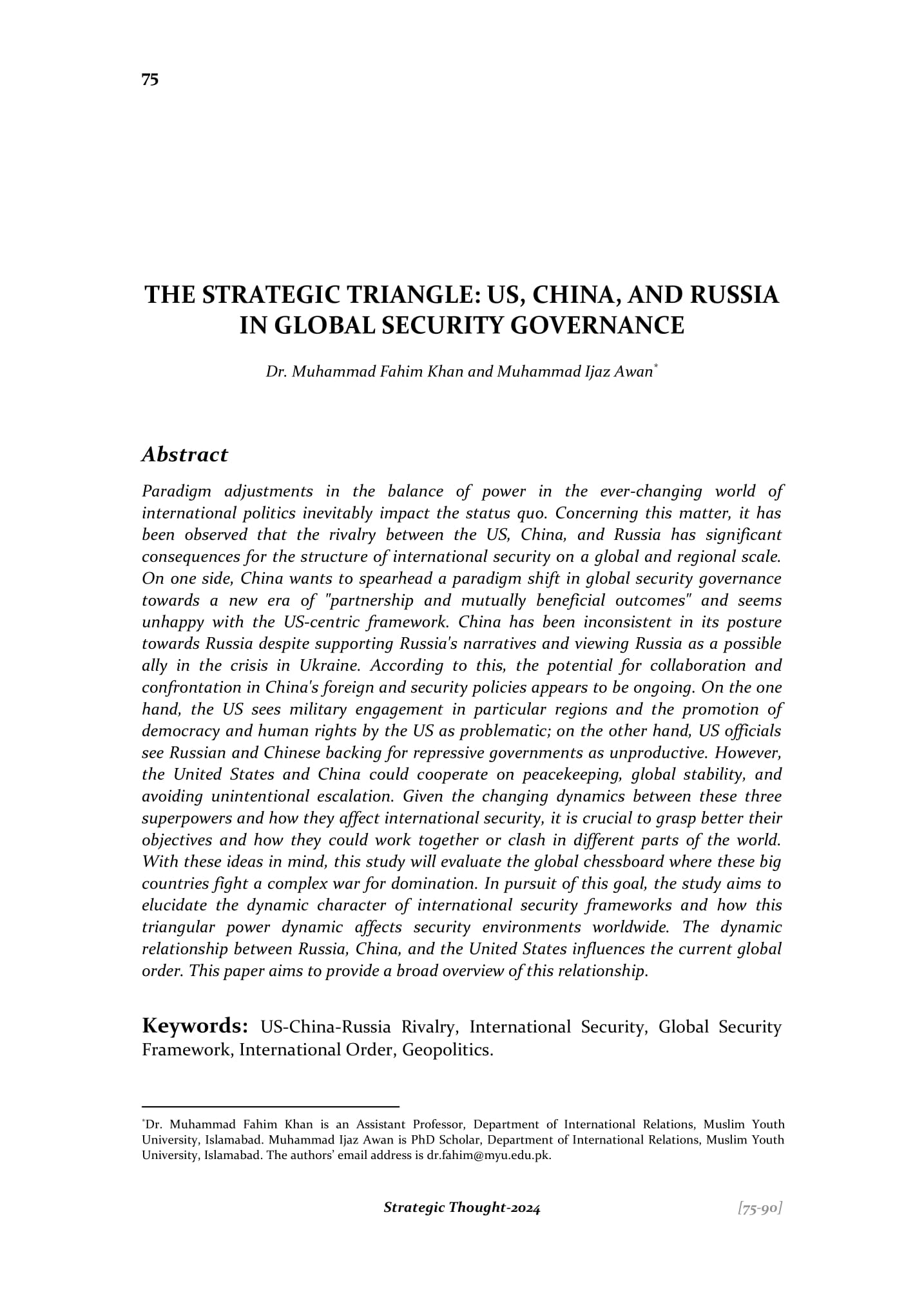THE STRATEGIC TRIANGLE: US, CHINA, AND RUSSIA IN GLOBAL SECURITY GOVERNANCE
Keywords:
US-China-Russia Rivalry, International Security, Global Security Framework, International Order, GeopoliticsAbstract
Paradigm adjustments in the balance of power in the ever-changing world of international politics inevitably impact the status quo. Concerning this matter, it has been observed that the rivalry between the US, China, and Russia has significant consequences for the structure of international security on a global and regional scale. On one side, China wants to spearhead a paradigm shift in global security governance towards a new era of "partnership and mutually beneficial outcomes" and seems unhappy with the US-centric framework. China has been inconsistent in its posture towards Russia despite supporting Russia's narratives and viewing Russia as a possible ally in the crisis in Ukraine. According to this, the potential for collaboration and confrontation in China's foreign and security policies appears to be ongoing. On the one hand, the US sees military engagement in particular regions and the promotion of democracy and human rights by the US as problematic; on the other hand, US officials see Russian and Chinese backing for repressive governments as unproductive. However, the United States and China could cooperate on peacekeeping, global stability, and avoiding unintentional escalation. Given the changing dynamics between these three superpowers and how they affect international security, it is crucial to grasp better their objectives and how they could work together or clash in different parts of the world. With these ideas in mind, this study will evaluate the global chessboard where these big countries fight a complex war for domination.
Bibliography Entry
Khan, Dr. Muhammad Fahim and Muhammad Ijaz Awan. 2024. "The Strategic Triangle: US, China, and Russia in Global Security Governance." Strategic Thought (6): 75-90.





